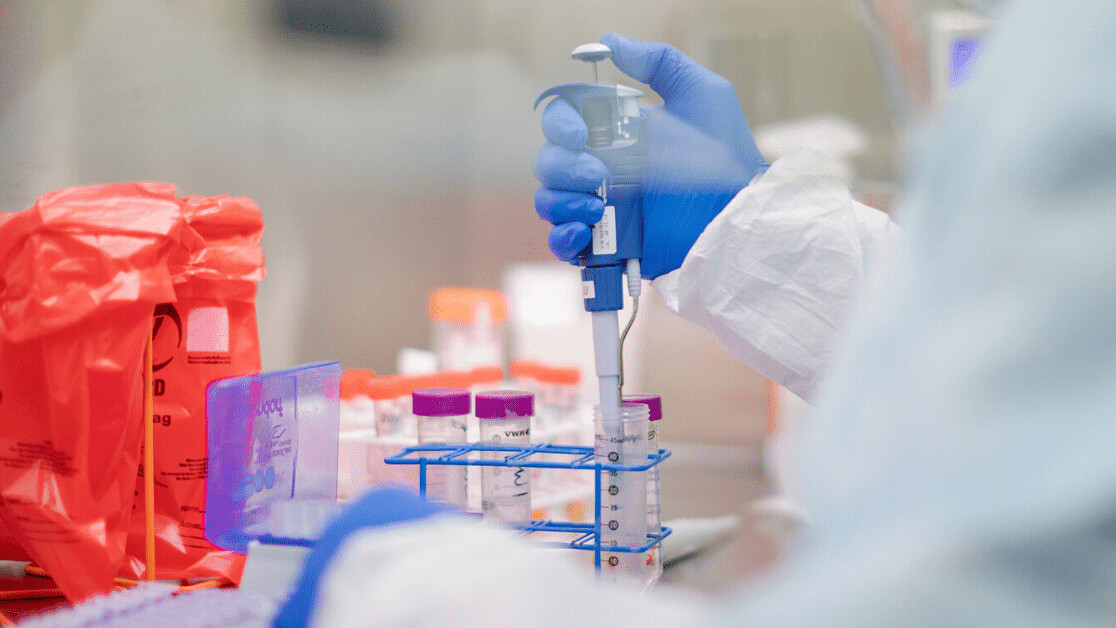Spain plans to deploy a fleet of robots that will automate the country’s coronavirus testing.
Swift testing is essential to curtail the spread of the pandemic. But it also exposes testers to the infection, risking their lives and further straining a workforce already stretched beyond its limits.
In Spain, around 12% of the 35,000 diagnosed with the coronavirus are health workers.
The fleet of robots would reduce their risk of exposure and quadruple the 15,000-20,000 tests Spain currently does a day, according to Bloomberg.
[Read: Israel builds survey-reading AI that predicts coronavirus outbreaks]
Raquel Yotti, the head of the Madrid-based Health Institute Carlos III, said at a health ministry press conference on Saturday:
A plan to automate tests through robots has been already designed, and Spain has committed to buying four robots that will allow us to execute 80,000 tests per day.
Robots to the fore
The Spanish government has so far provided no details on how the machines will work. When they’re deployed, they will join a growing range of robots tackling the pandemic.
Health chiefs in Northern Ireland are also developing a robotic testing system, while a robot in Washington, US, a robot equipped with a stethoscope has been taking vital signs from a patient diagnosed with the virus.
In China, which is on track to produce 45% of all industrial robot shipments by 2021, a hospital staffed by robots that take temperatures, deliver meals, and disinfect the facility opened in Wuhan earlier this month.
While fears of robots displacing workers are growing, this may be one job that humans are happy for them to take.
Get the TNW newsletter
Get the most important tech news in your inbox each week.





